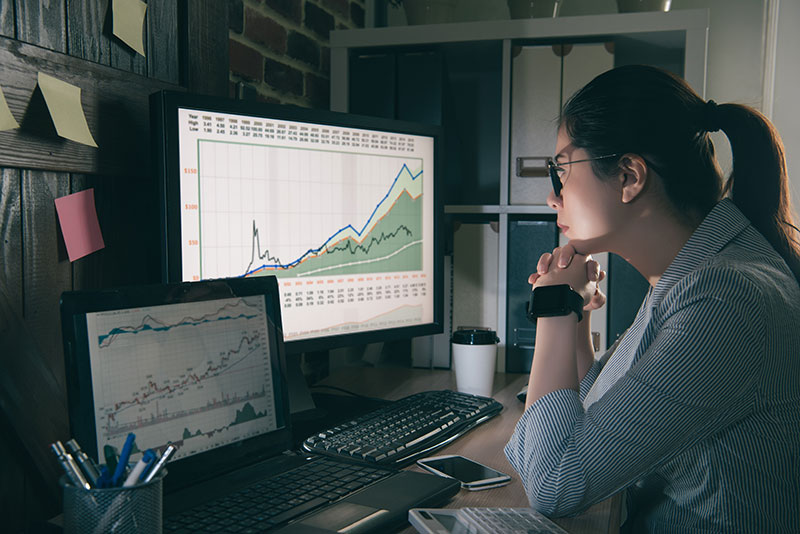Inflation is part and parcel of the modern economy. But rising prices affect different groups of people differently. We look at how inflation affects Consumers, Savers and Investors.
Inflation is something that we should all be concerned about. In the short term, we may not feel the pinch if inflation rises slowly. But over the long-term, it could severely eat into our savings and erode the value of our money, especially if interest rates stay low.
When the COVID-19 pandemic hit the global economy last year, one of the biggest worries economists had was how it would impact consumer confidence. And for most of 2020, the outlook was poor. Inflation in Singapore stagnated and even dipped into negative territory as consumers pulled back spending on worries over their jobs and income.
Since the start of 2021, with growth back on track, consumer prices have also rebounded, rising 2.4 per cent year-on-year in June.
Rising inflation means a dollar today is always more valuable than a dollar next year. But the effect on inflation is not the same for everyone. We take a closer look at how rising prices may affect Consumers, Savers and Investors.
Consumers
About 15 years ago, it was easy to find a packet of chicken rice that cost S$2. Today, most hawker stalls sell a plate for about S$3.50. Car buyers have even more to complain about. Private transport prices have risen by 14.9 per cent year-on-year in June 2021, according to the Monetary Authority of Singapore (MAS).
Many may point to all this and lament the effect of inflation. But the reality is that inflation is a natural and normal part of a healthy economy.
What matters is the pace of inflation. When it's too slow, it points to a lack of spending and consumer confidence, like Japan's lost two decades.
But when it's raging out of control, the value of money plummets, leaving everyone worse off. Think Argentina in the 1980s or the 19.64 per cent inflation experienced by Singapore in 1973 as a result of an oil crisis.
What everyone wants is a "Goldilocks" situation - a pace of inflation that is slow, steady and just nice.
The good news is this is what's happening in Singapore today, one which will likely continue, said Maybank Kim Eng economists who estimate that inflation will hit 1.8 per cent for 2021.
This means that for most of us, prices will rise, but slowly. And when our wages rise faster than inflation, it means that our standards of living will continue to rise.
"MAS left the average inflation forecasts unchanged at 0 to 1 per cent for core CPI (CPI as short for Consumer Price Index, which measures the average price changes over time of a fixed basket of consumption goods and services commonly purchased by households in Singapore) and 1 to 2 per cent for headline CPI. We expect MAS to maintain the current neutral stance at the October meeting and tighten only in April 2022," noted Maybank Kim Eng's regional co-head of Macro Research Dr Chua Hak Bin in a recent report.
Savers
Regardless of how fast or slow inflation is, it can eat into your savings over the long term.
If the interest rate you are receiving from your savings account is lower than increase in prices, it means that the value of your savings is actually falling over time.
Worse, higher inflation could lead to higher interest rates that can stifle economic activity. Fortunately, interest rates are not expected to rise significantly because economies around the world are still battling the fallout from the pandemic. For instance, the United States Federal Reserve is looking to keep ultra-low rates at least until end-2022.
"With the US economy well on-track, the Fed could start to taper this year. Expectations of a rate hike remain more probable in 2023, which is somewhat in line with Fed Reserve Chair Jerome Powell, as there is still 'much ground to cover to reach maximum employment'," said Ms Irene Foo, Head of Investment Strategy and Research at Maybank Group Wealth Management.
Investors

For investors, the issue of inflation is a bit more complicated.
In general, equity investors tend to do better when inflation rates rise. Steady inflation tends to be good for equities as higher prices usually translate into higher earnings because companies can raise prices for their products when their costs increase in an inflationary environment.
However, over shorter time periods, stocks have often shown a negative correlation to inflation and can be especially hurt by unexpected inflation. When inflation rises suddenly or unexpectedly, it can heighten uncertainty about the economy, leading to lower earnings forecasts for companies and lower equity prices.
But for bond investors, a rising inflation could hurt. Suppose an investor buys a five-year bond with a principal value of S$100. If the rate of inflation is 3 per cent annually, the value of the principal adjusted for inflation will sink to about S$83 over the five-year term of the bond. And if the interest payments from the bond are less than 3 per cent, the value of your entire investment could end up shrinking instead.
Navigating the current investment climate is not so straightforward. Fast rising inflation is bad now because it's tied to the US Federal Reserve's stance on monetary policy, which is aimed at stimulating growth. The loose monetary policy, which involves bond buying, helped inject trillions of dollars in liquidity to the market, resulting in one of the strongest bull runs the stock market has seen over the past three decades.
That is when inflation rises, there is a chance that the US could end its stimulus programme, a move that could result in a sharp correction for the stock market, said Ms Foo. Fortunately, most experts don't believe that inflation will spike unexpectedly.
"Still, there is a risk that the Fed may be forced to adopt earlier than expected tightening measures due to persistently high inflation. This could lead to an increase in market volatility although the likelihood of accelerated monetary tightening remains low for now, in our opinion," noted Ms Foo.

the bottom line:
There are pros and cons to inflation. Understanding how it affects you is the first step to making sure you are protected from it!
 Linkedin
Linkedin Facebook
Facebook Email
Email Whatsapp
Whatsapp Telegram
Telegram
